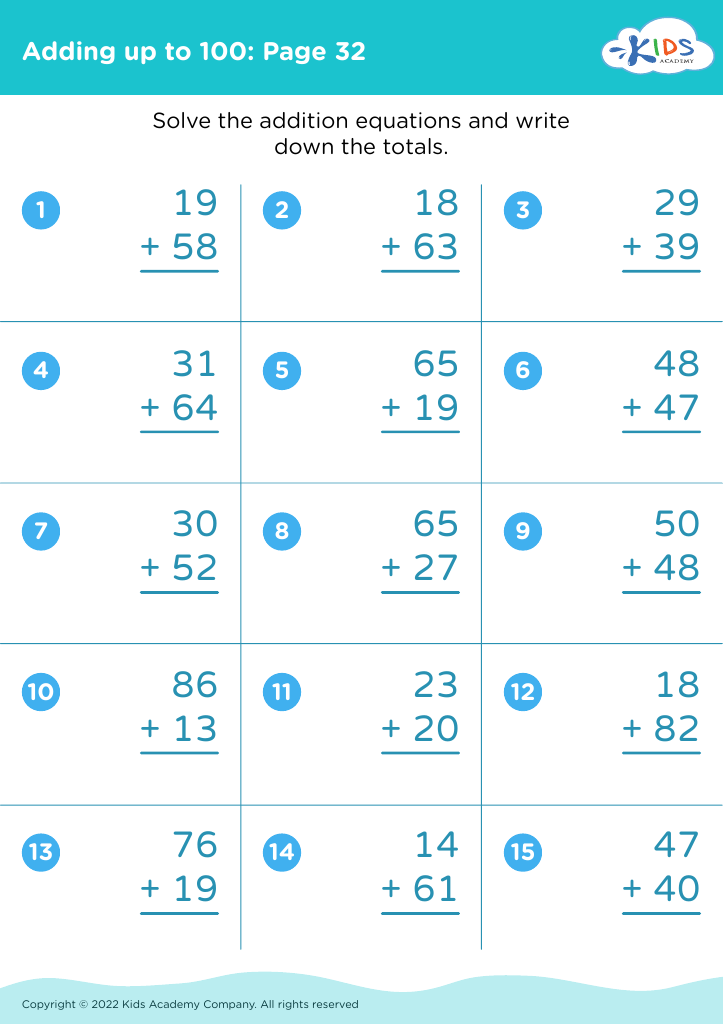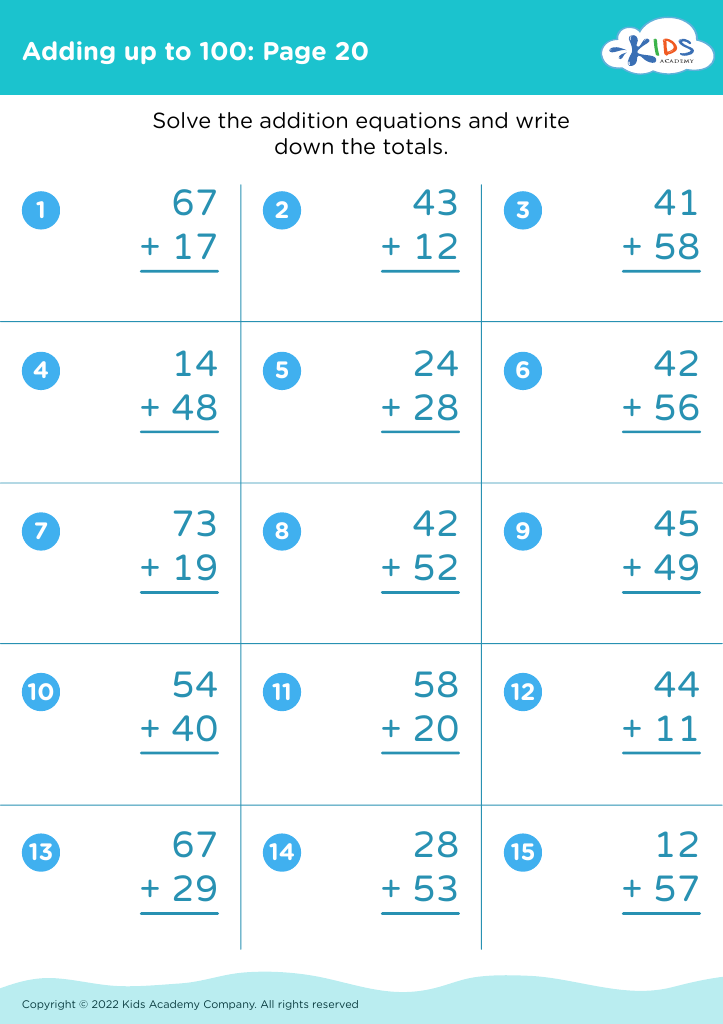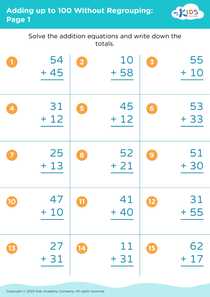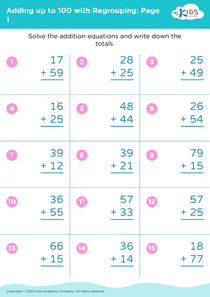Fraction simplification Adding up to 100 Misc Worksheets for Ages 6-7
6 filtered results
-
From - To
Discover our engaging "Fraction Simplification: Adding Up to 100" worksheets designed for children ages 6-7. These fun and interactive resources help young learners master the concept of simplifying fractions while enhancing their addition skills. Each worksheet offers a variety of exercises that make learning enjoyable and effective, ensuring students build a solid foundation in math. Perfect for classroom use or at-home practice, these printable worksheets promote critical thinking and boost confidence in numbers. Access these valuable materials now to support your child's mathematical journey and encourage a love for learning!
Understanding fraction simplification and addition concepts is essential for children aged 6-7, as it sets a strong foundation for their mathematical future. Parents and teachers should care about this for several reasons.
Firstly, grasping fractions enhances children's number sense and fosters critical thinking. When children learn to simplify fractions, they practice recognizing relationships between numbers, which is a key aspect of mathematical reasoning. Simplification helps them to comprehend the concept of equivalent values, vital for learning more complex math later on.
Secondly, the concept of adding fractions that make up to 100 reinforces their understanding of part-whole relationships. This improves their ability to approach problem-solving in diverse contexts, whether in math or applied real-life situations, such as cooking or budgeting.
Moreover, fostering an interest in fractions early encourages confidence in math. Children who receive encouraging instruction in these concepts tend to build a positive attitude towards math, beneficial for their overall academic journey.
Finally, engaging with fractions, especially through fun activities aimed at 6-7-year-olds, makes learning enjoyable. It promotes parental involvement and dialogue about math at home, which is crucial for children’s learning outcomes.

















